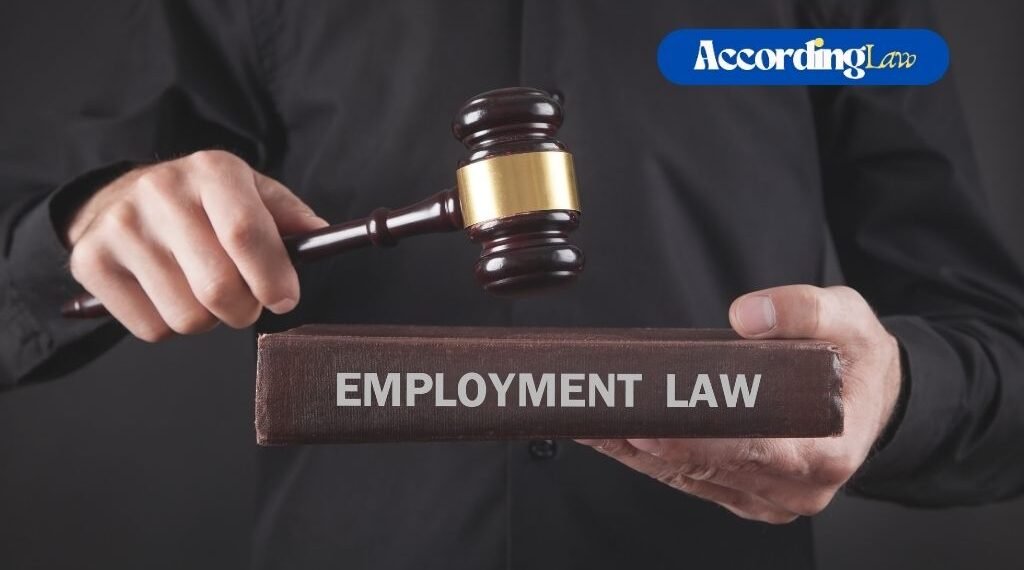Understanding the role of an employment lawyer is crucial for both employers and employees. These legal professionals specialize in matters related to the workplace, ensuring that organizations adhere to employment laws and that employees’ rights are protected.
Employment lawyers play a pivotal role in the business environment by providing guidance on a wide range of issues. They help employers develop policies that comply with legal standards, such as anti-discrimination laws, and advise on best practices for fostering a fair and inclusive workplace. For instance, the Liane Ly Law Firm offers expertise in tailoring policies to meet specific organizational needs, ensuring legal compliance and promoting a respectful work culture.
Table of Contents
Understanding Employment Law
Employment lawyers are well-versed in various legal frameworks that govern workplace conduct. They interpret laws such as the Civil Rights Act and the Equal Employment Opportunity Act, which protect employees from discrimination based on race, gender, age, disability, and more. By staying informed about these laws, employment lawyers can help organizations develop comprehensive policies that align with legal requirements and promote fairness.
These legal experts also assist in navigating complex legal issues, providing clarity and direction to HR professionals and management teams. Their insights are invaluable in ensuring that workplace policies are both legally sound and reflective of an organization’s commitment to diversity and inclusion.
Employment lawyers must also stay current with emerging workplace trends and their legal implications. This includes understanding regulations surrounding remote work arrangements, gig economy classifications, and digital privacy rights. As technology continues to reshape the workplace, these legal professionals provide crucial guidance on new challenges such as electronic monitoring policies, social media guidelines, and data protection requirements for employee information.
Advising on Workplace Policies
One of the key responsibilities of an employment lawyer is advising on the creation and implementation of workplace policies. They work closely with HR departments to ensure that policies not only comply with current laws but also address potential areas of concern. This includes drafting employee handbooks, developing anti-harassment guidelines, and establishing procedures for handling workplace disputes.
By collaborating with employment lawyers, organizations can proactively address issues before they escalate, fostering a positive work environment. Legal guidance ensures that policies are clear, enforceable, and aligned with the latest legal standards, thereby reducing the risk of litigation.
Employment lawyers also play a vital role in helping organizations adapt their policies to address emerging workplace challenges. This includes developing protocols for remote work arrangements, creating guidelines for social media usage, and establishing procedures for protecting confidential information in digital environments. They ensure that these policies maintain a balance between protecting the employer’s interests and respecting employee rights while remaining compliant with applicable laws.
Training and Education Initiatives
Beyond advising and litigating, employment lawyers also play a crucial role in educating both employers and employees about their rights, responsibilities and the evolving legal landscape. They often design and deliver comprehensive training programs on key topics such as workplace harassment prevention, diversity and inclusion, wage and hour laws and compliance with labor regulations. These educational efforts help organizations not only reduce the risk of costly legal violations but also foster a culture of awareness, respect, and accountability across all levels of the workforce.
By providing practical guidance and up-to-date legal insights, employment lawyers empower managers and staff to recognize potential legal issues before they escalate, promoting proactive problem-solving and effective communication. This emphasis on education ultimately strengthens workplace relationships, improves morale, and contributes to long-term organizational success by aligning everyday practices with legal and ethical standards.
Handling Disputes and Litigation
Employment lawyers are also instrumental in handling disputes and litigation. When conflicts arise, whether related to wrongful termination, discrimination, or wage disputes, these legal professionals represent either the employer or the employee in negotiations or court proceedings. Their expertise in employment law allows them to effectively advocate for their clients’ rights and interests.
In addition to litigation, employment lawyers often engage in mediation and arbitration to resolve disputes outside of court. This approach can save time and resources while achieving a satisfactory outcome for all parties involved.
The Importance of Legal Expertise in Employment Matters
Engaging with an employment lawyer reflects a proactive approach to managing workplace issues. Their expertise not only safeguards the rights of employees but also helps organizations maintain compliance with ever-evolving employment laws. By ensuring that policies are legally sound and effectively implemented, employment lawyers contribute to a harmonious and productive work environment.
Ultimately, the role of an employment lawyer is integral to the smooth operation of any organization, acting as both a protector and advisor in the complex landscape of workplace law. Their guidance and support help organizations navigate ever-changing legal requirements, minimizing risks and preventing costly disputes.
By ensuring compliance and fostering fair employment practices, these legal professionals contribute to creating a positive, respectful and productive work environment. This, in turn, helps build trust between employers and employees, which is essential for long-term success and growth.
Whether through policy development, education or dispute resolution, employment lawyers empower organizations to adapt to new challenges while safeguarding the rights and interests of all parties involved. In today’s dynamic work environment, their expertise is more valuable than ever, making them indispensable partners in building workplaces where both employers and employees can truly thrive.


